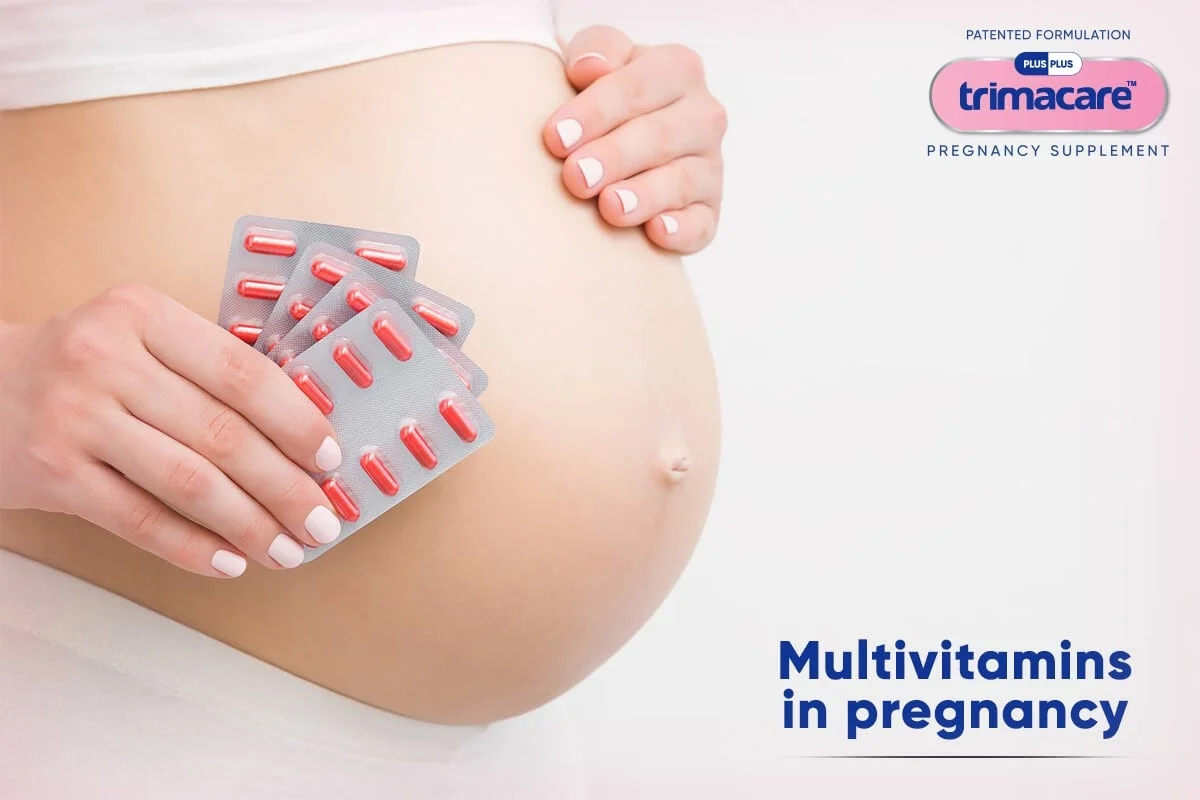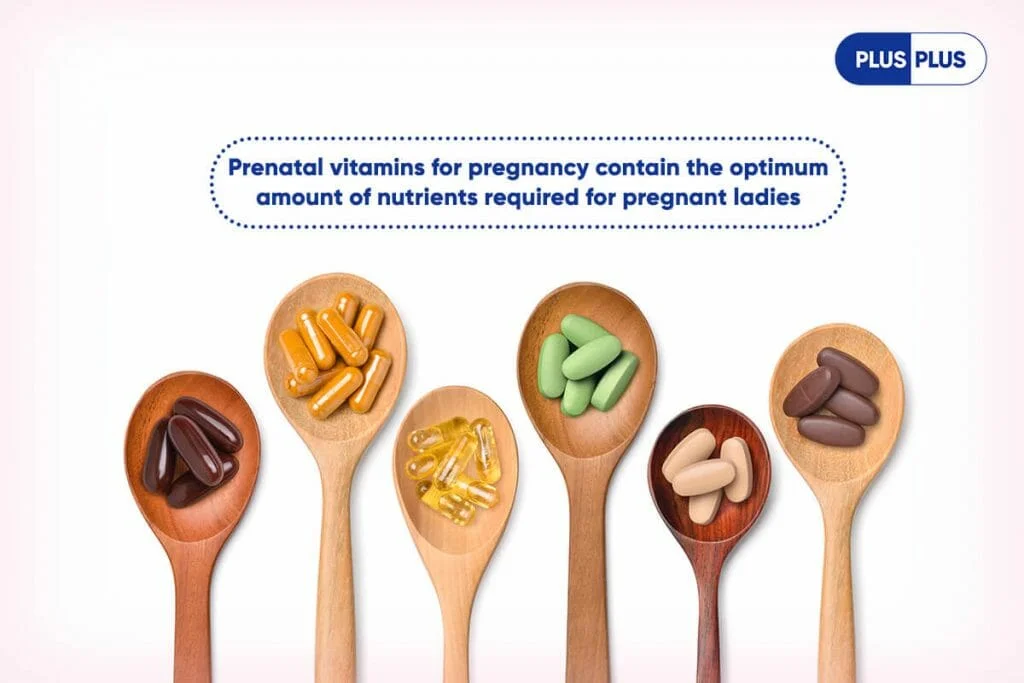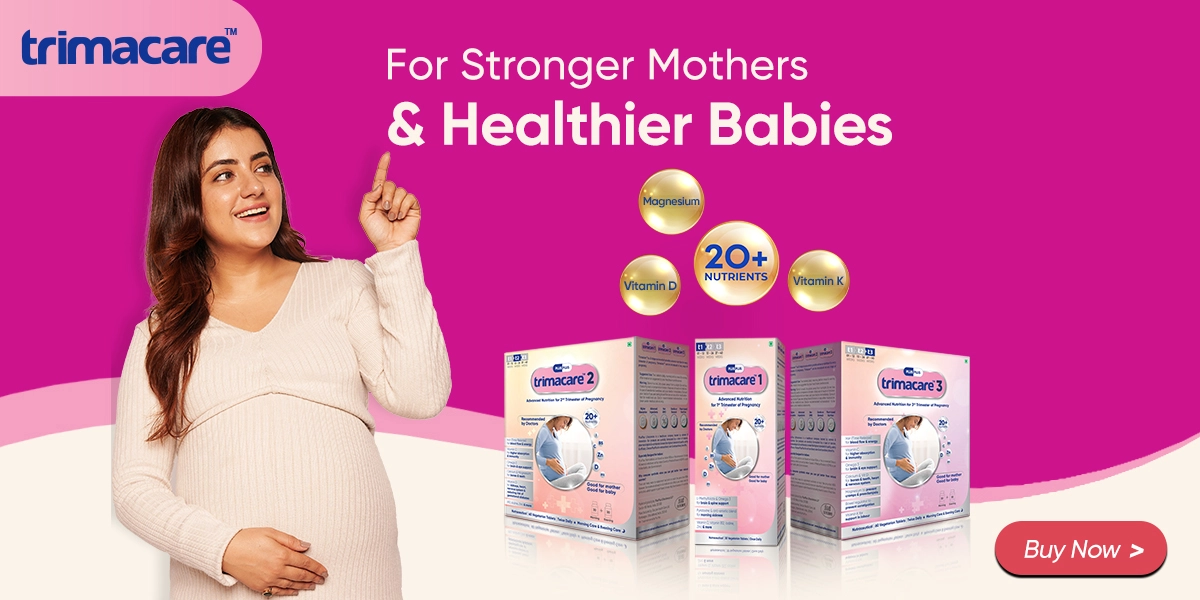Pregnancy is a period of great physical transformation and nutritional needs. To support a healthy pregnancy and foetal growth, many doctors recommend prenatal multivitamins.
But are they safe? And how do you choose the best multivitamin for pregnancy? Let’s look at the facts regarding prenatal supplements and their importance in pregnancy nutrition.
What are prenatal multivitamins?
Prenatal multivitamin supplements are specifically designed to address the higher nutritional requirements of pregnant women. Unlike multivitamins, a pregnant woman’s multivitamin has a higher level of essential nutrients like folic acid, DHA, iron and calcium.
These vitamins during pregnancy nourish the brain development, neural tube development, bone growth and overall health of the baby and assist mothers in keeping themselves healthy.
Are Prenatal Vitamin Safe?
Yes, prenatal vitamins are usually safe and commonly prescribed by doctors. But safety is based on:
- Selecting the best prenatal multivitamins according to your health needs.
- Not overdosing on vitamins such as Vitamin A (in retinol form) since it may cause harm at high levels of intake.
- Not taking any new prenatal tablet or multivitamin tablets for pregnancy without consulting your doctor. Are prenatal multivitamins safe during pregnancy?
Key Nutrients in Prenatal Multivitamin
Let’s take a look at the key nutrients that are usually included in a prenatal multivitamin.
- Folic Acid- Essential for the prevention of neural tube defects. It is a staple ingredient in most prenatal vitamins.
- Iron – Maintains the higher blood volume in pregnancy and helps to prevent anaemia.
- Calcium – Essential for foetal bone formation. Many women take calcium tablets for pregnancy in addition to their multivitamins if needed.
- Vitamin D- Helps in calcium intake and maintains bone health.
- Omega-3 – Particularly DHA, helps in brain and eye development in the unborn child. Choose a prenatal multivitamin with DHA for comprehensive support.
Calcium Supplements During Pregnancy
Some prenatal vitamins might lack sufficient calcium. If you are not receiving enough from your diet, your doctor may prescribe calcium supplements during pregnancy to ensure your daily requirements.
Choosing the Best Prenatal Multivitamin
With so many choices out there, it can be daunting to choose the best multivitamin for pregnancy. Here’s what to search for
- Prenatal vitamin tablets with folic acid(400- 800 mcg), iron(27mg) and calcium.
- A multivitamin with DHA to enhance brain development.
- Good brands that are purity-tested and quality-checked.
Always consult your doctor to find out the best prenatal multivitamin for your specific health status. This ensures that the mother’s and baby’s bones stay healthy and strong.
If you are not receiving enough through diet, your doctor may prescribe calcium tablets for pregnancy to fulfil your daily requirements.
When to start taking a pregnancy multivitamin?
It is advised to start taking a prenatal multivitamin one month prior to conception and continue during pregnancy. Some women even start a prenatal multivitamin supplement when they are trying to conceive to have the best pregnancy nutrition from the beginning.
Signs you may need a prenatal multivitamin supplement
Feeling tired, dizzy or noticing hair loss during pregnancy? These may be signs of nutrient deficiencies. A prenatal multivitamin supplement can help fill these gaps, especially for women with restricted diets or severe morning sickness. Taking a multivitamin for pregnant women ensures you get essential vitamins during pregnancy, like iron, folic acid and calcium for your and your baby’s health.
Incorporating prenatal vitamins into a balanced diet
A nutritious diet is important when pregnant, but food alone may not be enough. Prenatal vitamins complement meals to ensure comprehensive pregnancy nutrition.
Choose a prenatal vitamin tablet containing essential nutrients. If necessary, supplement with calcium tablets for pregnancy, but always consult your doctor before taking the supplement together.
Importance of Omega-3 during Pregnancy
Omega-3 during pregnancy, particularly DHA, supports the baby’s brain and eye development. A lot of prenatal multivitamin tablets now include DHA to facilitate supplementation.
In case your diet is low in fish, get a multivitamin that has DHA or take an extra supplement to maintain complete pregnancy nutrition.
How to manage nausea when taking prenatal vitamin tablets?
- Take your prenatal vitamin tablets with food or after a meal to avoid nausea.
- Split your multivitamin tablet for pregnancy– half in the morning and evening – for easy digestion.
- Use the best prenatal multivitamin that includes gentle iron and is designed for sensitive stomachs.
If nausea persists, consult a doctor about changing your prenatal multivitamin supplement or using a pregnancy tablet containing DHA in the form of liquid or soft gel.
- Drink a lot of water and avoid greasy or spicy foods to help with overall pregnancy nutrition.
- Take calcium supplements during pregnancy at a different time from your iron-containing pregnancy tablets to minimise upset stomach.
- Always take medical guidance while making changes to your prenatal supplements.
Trimacare pregnancy multivitamin: Safe and Trusted by Indian mothers
Trimacare is India’s only multivitamin tablet specially designed for pregnant women, offering a comprehensive prenatal nutrition program tailored for the three trimesters of pregnancy.
Trimacare pregnancy supplement ensures relief from pregnancy complications and healthy growth for infants. What’s unique about the Trimacare prenatal tablet is that it contains all the essential nutrients within one pill, eliminating the use of multiple pregnancy supplements.
Trimacare pregnancy vitamin provides a one-stop solution with more than 20 essential nutrients for complete health during pregnancy.
Trimacare prenatal supplement is carefully formulated according to WHO and ICMR guidelines, providing scientifically validated nutritional support for pregnant women.
FAQs
Q1. How is a prenatal vitamin different from a regular multivitamin?
A prenatal tablet contains nutrients such as folic acid, iron, and DHA, specifically important for pregnancy, whereas regular multivitamins do not necessarily meet those requirements.
Q2. Do I need a multivitamin when pregnant if I am eating a balanced diet?
Yes, even with a healthy diet, a multivitamin during pregnancy guarantees you receive adequate amounts of important nutrients for mother and baby alike.
Q3. Can prenatal vitamins make me feel nauseous or constipated?
Certain multivitamins during pregnancy may cause nausea or constipation because they contain iron. Changing to a milder formula might be beneficial.
Q4. Do I keep taking prenatal supplements after delivery?
Yes, most doctors say to stay on pregnancy tablets post-delivery, particularly if you are breastfeeding.
A Certified Nutritionist with a rich healthcare background in health journalism, the author has immense experience in curating reader-friendly, engaging, and informative healthcare blogs to empower readers to make informed pregnancy-related decisions.













